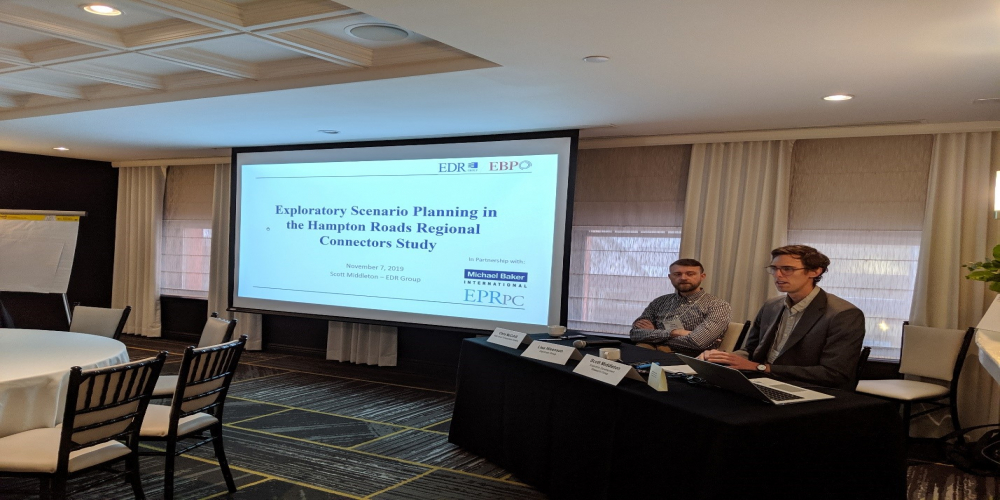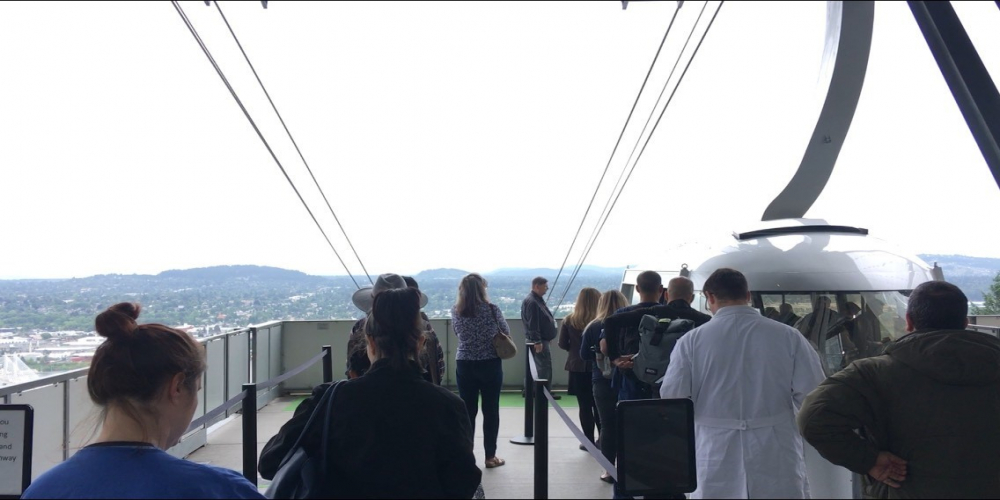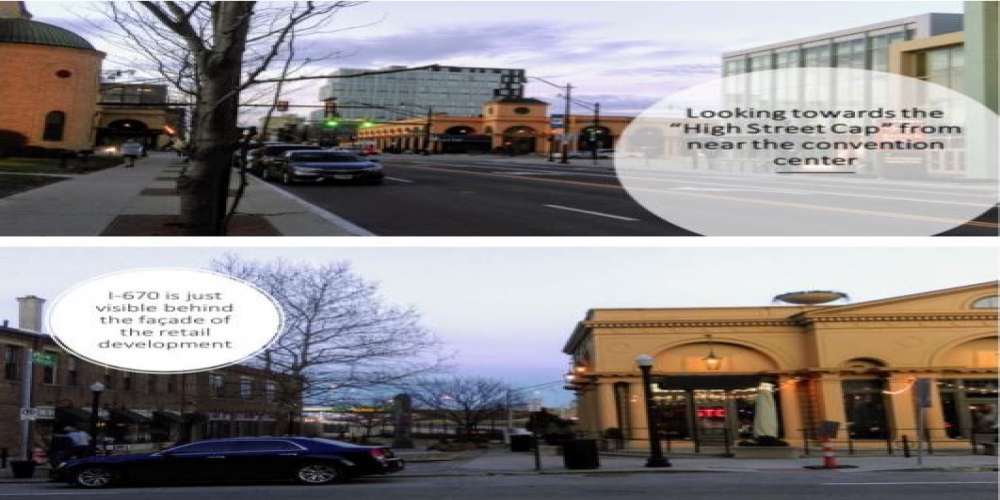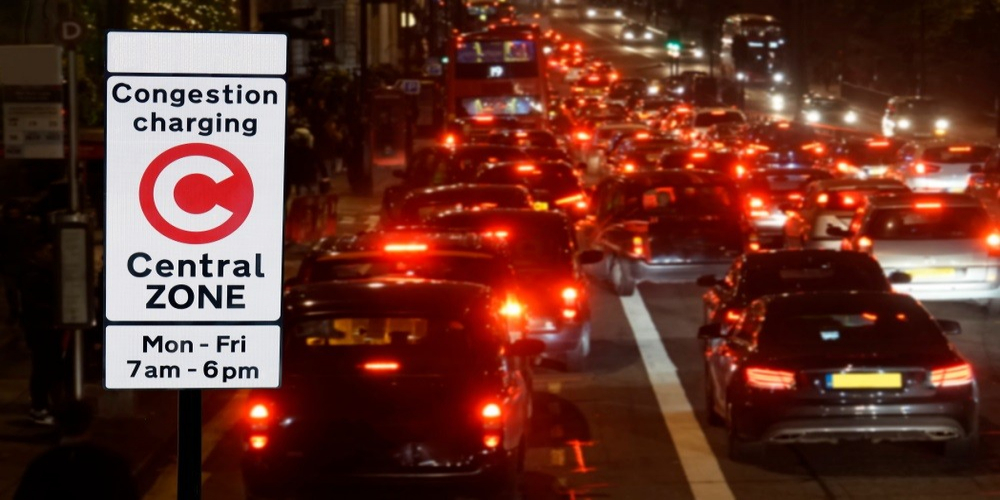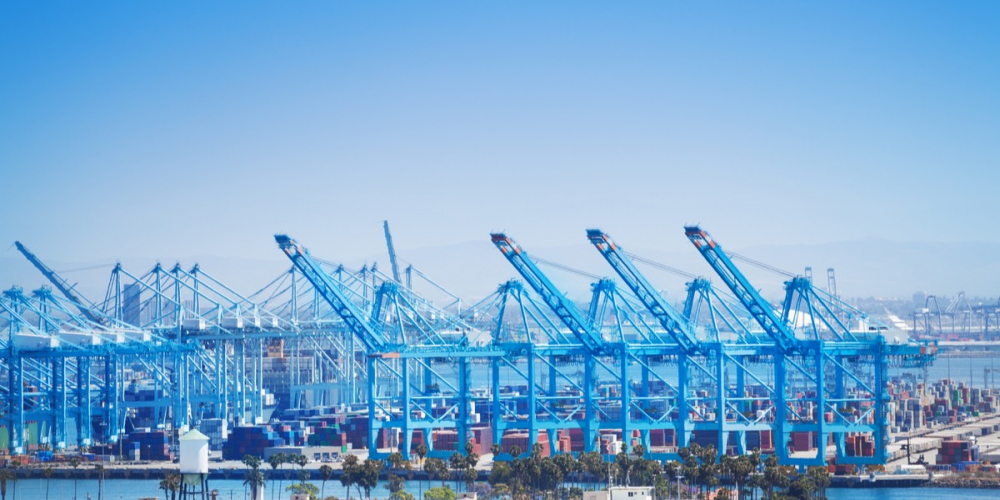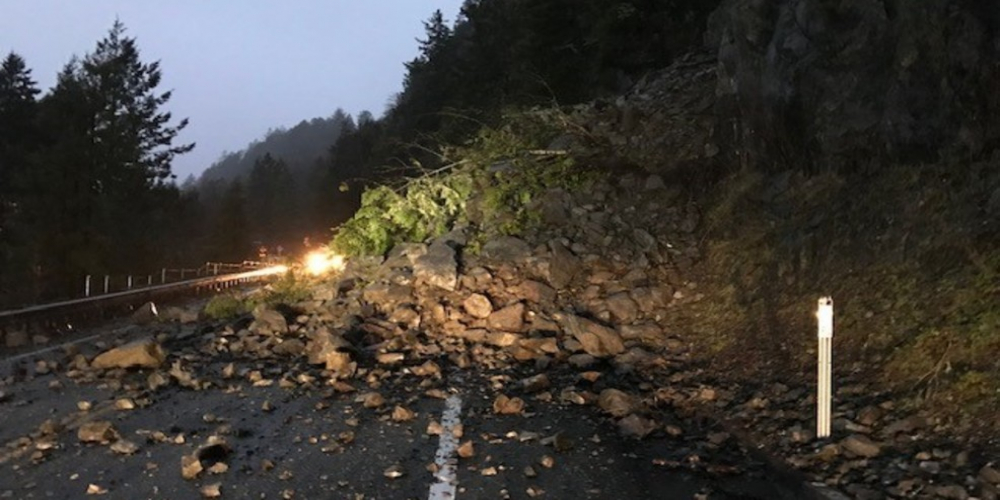Archive
It’s been a busy period of travel for me, starting with a scenario planning conference in Connecticut and moving onto a resilience conference in Washington, DC. During November 13th-15th, 2019, I took part in TRB’s 2nd International Conference on Resilience to Natural Hazards and Extreme Weather Events . Overall, the conference focused on best practices for adapting transportation networks to better withstand natural disasters.
Tags:
#Resilience
#TRB
Scenario planning – a flexible and indispensable methodology for considering alternative futures and identifying appropriate planning responses – is a growing area of practice for EDR Group. As we explain in our Emerging Topic page on scenario planning, it is a useful tool for guiding infrastructure investment plans in the face of uncertainty related to sea level rise, technology adoption, economic growth, and just about any uncertain factor you can imagine.
Tags:
#scenario planning
Departments of transportation increasingly use scenario planning to prepare for future changes that will affect the movement of people and goods. Scenario planning requires planners to prepare for a range of possible futures, considering topics like climate change, demographics, and emerging technology. Technological change is perhaps the most difficult issue to address given the wide uncertainty surrounding new mobility and the number of private operators involved in transportation.
Last week I attended the TRB Transportation Planning Applications Conference in Portland, OR. To those familiar with the TRB Annual Meeting, TRBAppcon (as it’s called) is a smaller and less formal event with a greater emphasis on showcasing practical techniques and approaches to transportation planning.
Kyle Schroeckenthaler of EDR Group is on assignment to the offices of our parent company, EBP, in Zurich for the summer months. While in Zurich, Kyle is working closely with the Resources, Energy and Climate division as well as the Transportation group to identify European and global best practices that could be beneficial to our US-based clients. Kyle’s visit will especially support EDR Group’s ability to provide a range and depth of services to clients on new mobility topics such as vehicle electrification and automated and connected technologies effect on transportation systems.
Tags:
#EBP
#electromobility
The Transportation Research Board's (TRB's) National Cooperative Research Highway Research Program (NCHRP) recently released Report 873: Guidebook to Funding Transportation Through Land Value Return and Recycling.
Tags:
#value capture
This week I am in beautiful Portland, Oregon attending the Transportation Research Board’s Transportation Planning Applications Conference, which showcases practice-ready transportation planning applications. At the corner of research and practice, the conference is a great opportunity for participants to share innovative methods of policy analysis and technical transportation planning. I am particularly excited to join workshops, panel discussions, and lightning talks on topics like freight data, multimodal performance measures, and data visualization.
In the early hours of March 31st, New York State took the landmark step of moving forward with implementation of a congestion pricing policy for Manhattan. With this deal, NYC edges out other cities like Seattle and Los Angeles to be the first in the U.S. to impose a charge on all vehicles entering a specific zone of the city. Other kinds of congestion pricing like dynamic rates for express toll lanes have existed for years, but drivers generally have an alternative option to reach their destinations without paying a fee. Starting in 2021, that will not be the case for almost any vehicle traveling into Manhattan below 60th Street – only emergency vehicles and vehicles transporting someone with a disability are exempt from the charge established in New York’s legislation.
The Port of Long Beach – along with its neighbor the Port of Los Angeles – is the nation’s largest gateway for international container trade. EDR Group recently completed the Port of Long Beach Economic Impact Study, which quantifies the massive economic impacts of this critical economic engine and its role in the national economy. The study assesses the full range of Port activities, including not only cargo operations, but also cruise passenger services, retail, tourism, and real estate functions. The media has taken note, with stories appearing in publications like the Long Beach Business Journal and Maritime Executive. The study is available on the Port of Long Beach web site.
Many MPO’s and state DOT’s are beginning to assess not only their vulnerability to transportation system failures caused by natural disasters and weather-related events, but also the wider economic consequences of potential future infrastructure system failures. As such events may increase in frequency with aging facilities and climate change, understanding the economic consequences of these events should be at the core of any resiliency analysis.
Tags:


